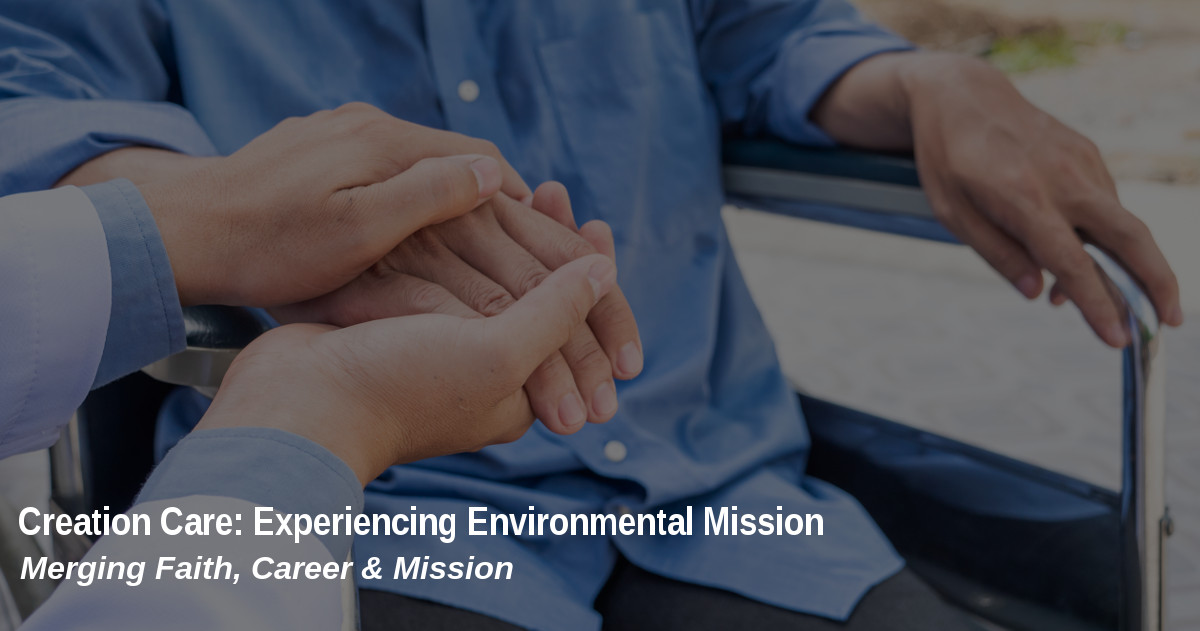DEPARTMENT OF CREATION CARE
Experience Creation Care
Welcome Message
About the Department
Undergraduate Studies
Experiential Learning
- Dual Enrollment Academy
- Observership
- Undergraduate Certificates
- Practicum
- Associate Degree Experiences
- Observership
- Practicum
- Bachelor Degree Experiences
- Observership
- Practicum
- Field Instruction
- Internship
- Mentorship
- Capstone
- Project
- Portfolio
- Research
- Thesis
Graduate Studies
Experiential Learning
- Graduate Certificates
- Practicum
- Master Degree Experiences
- Observership
- Practicum
- Field Instruction
- Internship
- Mentorship
- Portfolio
- Project
- Research
- Thesis
Doctoral Studies
Experiential Learning
- Doctoral Degree Experiences
- Intro to Doctoral Studies
- Research
- Dissertation
Resources
- School Resources
- University Resources
News and Calendar
- News Archive
- Calendar
Departmental Faculty
Course Descriptions
- Undergraduate Programs
- Graduate Programs
Contact Information

About the Department
The inclusion of experiential learning components and courses in the academic programs at Missional University has manifold benefits to students enrolled in each of the five departments in the School of Ecological Mission namely: Environmental Studies, Ecology and Biodiversity, Global Healthcare and Population, Epidemiology and Infectious Disease and Geospatial Studies.
Experiential Learning Types
The Department of Creation Care offers a variety of types of experiential learning activities for undergraduate and graduates in each of the five departments in the School of Community Ministry including observership, practicum, field instruction, internship, mentorship, capstone, portfolio, project, research and thesis courses.
Experiential Learning Outcomes
Students who successfully complete the experiential learning activities in the Department of Creation Care gain valuable experience in their academic field.
Benefits to Environmental Studies Students
By engaging in experiential learning activities and taking experiential learning courses SEM students at Missional University who are pursuing Environmental Studies are prepared for missional ministry in global societies that balances the need for urban development, exploration and exploitation of earth resources, and environmental stewardship. They will will:
- learn by observing the workplace and experiencing a career field from the inside
- gain opportunity to practice basic theoretical concepts in environmental studies
- discover and develop innovative ways to conserve energy and sustainably manage natural resources base and ecosystems
- acquire attitudes and perspectives with regards to environment, stewardship, and sustainability that are consistent with Scriptures
- educate others on the importance of achieving environmental sustainability
Benefits to Ecology and Biodiversity Students
By engaging in experiential learning activities and taking experiential learning courses SEM students at Missional University who are pursuing a degree in Ecology and Biodiversity are equipped to be ecologists, biologists, and chemists. A degree in ecology and biodiversity also prepares students for a variety of vocations, from health professions to conservation research. They will:
- experience first hand varied responsibilities of one who works in the field of conservation ecology
- conduct research to address problems related to the study of the biological and chemical aspects of nature
- develop creative means towards habitat conservation and wildlife protection
- produce projects that will aid humans and animals achieve healthy lives in diverse physical environments
- find practical avenues to serve in the mission of God in conservation biology, restoration ecology and coastal and wet ecology and management
Benefits to Global Healthcare and Population Students
By engaging in experiential learning activities and taking experiential learning courses SEM students at Missional University who are pursuing a degree in global healthcare and population are honed to understand the history and progress of global health and the policies. They will:
- grow in their practical knowledge how to respond well and deal with a myriad of healthcare needs arising from disasters [i.e., hurricanes, tornadoes, earthquakes etc.], and other global health concerns [i.e. mental illness, trauma]
- acquire skills in crisis management
- identify practical ways to serve in the mission of God through the creation of varied outreach initiatives to help victims of disasters, and diseases that spread after natural disasters
- conduct research to overcome challenges in the field of global healthcare and population.
Benefits to Epidemiology and Infectious Disease Students
By engaging in experiential learning activities and taking experiential learning courses Missional University students pursuing degrees in Epidemiology and Infectious Diseases are trained to be epidemiologists or health professionals who investigate patterns and causes of disease and injury in humans.
They will:
- grow in their practical knowledge how to help and treat victims of epidemics, and infectious diseases
- identify practical and innovative modes of service in the mission of God through the creation of outreach initiatives that combines healthcare and soul care
- conduct research to identify preventive measures and antidotes to infectious diseases
- develop analytical and evaluative skills needed to track the spread of diseases and to assess the effectiveness of systemic and treatment approaches
- flourish in their ability to educate and mobilize others in epidemic and infectious disease prevention.
Benefits to Geospatial Studies Students
By engaging in experiential learning activities and taking experiential learning courses SEM students at Missional University who are pursuing a career in Geospatial Studies are trained to think spatially and in the use of geospatial technologies, customizing and serving data and conducting spatial analysis to drive missional operations in organizations. They will:
- acquire skills in mapping the mission in various settings around the world
- develop competencies in mapping issues that impact missional efforts in intercultural mission, missional practices, community ministries, environmental mission, global healthcare, communication and media, and theological studies
- grow in critical thinking and analytical skills to address questions related to place and spatial interaction
- expand practical knowledge of the use of geospatial information systems for data analytics purposes
